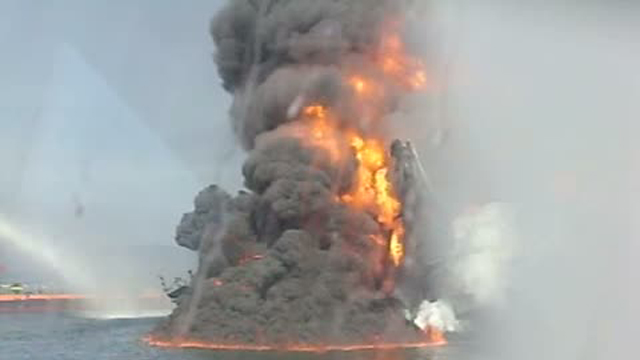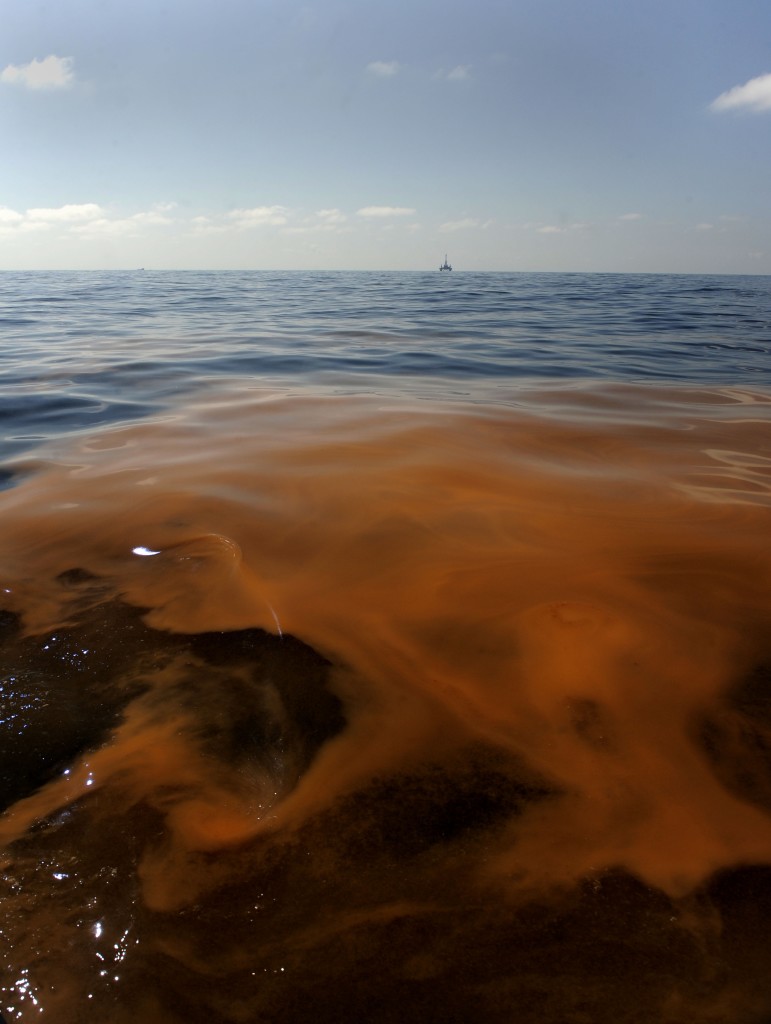U.S. Slams BP for “Gross Negligence” in Gulf Oil Spill

September 5, 2012
Share
The U.S. will argue that BP was guilty of “gross negligence” and “willful misconduct” when the civil trial over the 2010 Deepwater Horizon disaster in the Gulf of Mexico begins in January, according to a court brief filed by the Department of Justice.
In a scathing memo [PDF] submitted last week to the New Orleans court that will hear the case, government attorneys write that their investigation unmasked a “culture of corporate recklessness” at the British oil giant that led to the largest oil spill in U.S. history.
“The behavior, words and actions of these BP executives would not be tolerated in a middling size company manufacturing dry goods for sale in a suburban mall,” according to the Aug. 31 brief.
“Yet they were condoned in a corporation engaged in an activity that no less a witness than [former BP CEO] Tony Hayward himself described as comparable to exploring outer space.”
The 39-page brief came in response to a motion BP filed in August urging the court to approve an estimated $7.8 billion settlement it has reached with 125,000 individuals and businesses affected by the spill. The government wrote that it had not planned to issue a response, but was moved to do so by what it described as “plainly misleading representations” in the BP motion that could undermine plans to prove “gross negligence.”
The Justice Department said that BP’s “cherry-picked assertions of robust recovery” along the Gulf Coast ignore lingering signs of damage in the region, including the poor health of dolphins in Louisiana’s Barataria Bay, dead or dying deep-sea corals, and “heavy marsh oiling.”
The issue of gross negligence is central to the case. Such a finding could ultimately quadruple the civil damages owed by BP under the Clean Water Act to $21 billion.
According to the government, one of the clearest examples of blunder by BP and Transocean, the owner of the Deepwater Horizon rig, came in reading a “negative pressure test” on the well. As Forbes explained:
Before the Deepwater Horizon could finish its job and disconnect from the well the drillers needed to make sure the cement job had been done right and that the well was in stasis, that is, there should be no oil or gas flowing through it. If the well is trying to flow it will show up in pressure gauges on the rig. A negative pressure test isn’t successful unless there’s no pressure reading at all. But at the Macondo test, sensors did show a pressure anomaly from the well. Despite acknowledging the pressure reading and agreeing that it was worrisome, BP’s supervisors Don Vidrine and Mark Hafle dithered.
The Justice Department argues that BP should have run the test again following the negative reading, and that doing so would have meant closing the rig’s blowout preventer. Such a move would have halted the flow of any oil running through the well, possibly preventing the spill.
“That such a simple, yet fundamental and safety-critical test could have been so stunningly, blindingly botched in so many ways, by so many people, demonstrates gross negligence,” the Justice Department wrote.
The government also hammered BP for ignoring lessons from a 2005 explosion at a refinery in Texas City, Texas that killed 15.
In a statement, BP rejected the government’s claims, saying “BP believes it was not grossly negligent and looks forward to presenting evidence on this issue at trial in January.”

Related Documentaries
Latest Documentaries
Related Stories
Related Stories
Explore
Policies
Teacher Center
Funding for FRONTLINE is provided through the support of PBS viewers and by the Corporation for Public Broadcasting, with major support from Ford Foundation. Additional funding is provided the Abrams Foundation, Park Foundation, John D. and Catherine T. MacArthur Foundation, Heising-Simons Foundation, and the FRONTLINE Trust, with major support from Jon and Jo Ann Hagler on behalf of the Jon L. Hagler Foundation, and additional support from Koo and Patricia Yuen. FRONTLINE is a registered trademark of WGBH Educational Foundation. Web Site Copyright ©1995-2025 WGBH Educational Foundation. PBS is a 501(c)(3) not-for-profit organization.





















